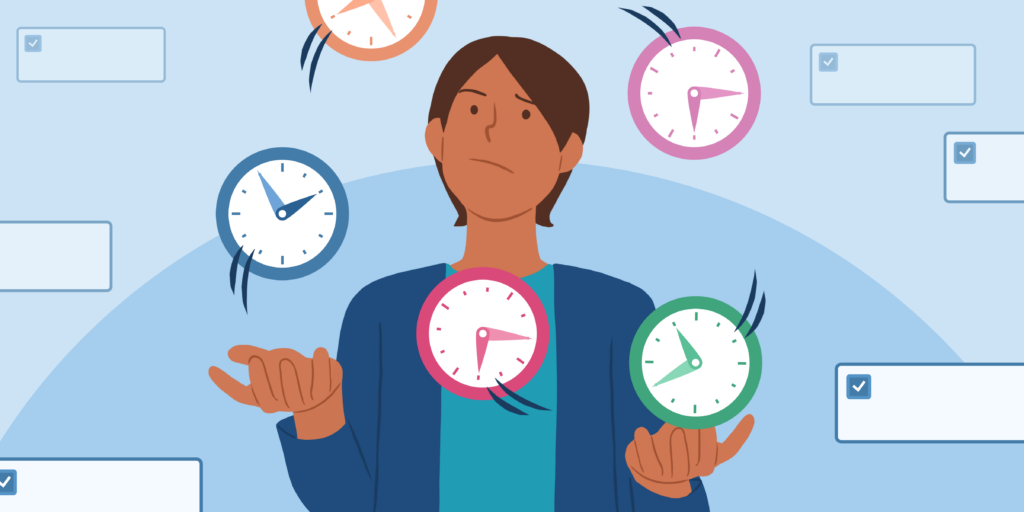In today’s world, time management is a vital skill. It allows individuals to achieve their goals and meet deadlines while maintaining a feeling of control. However, for individuals with Attention-Deficit/Hyperactivity Disorder (ADHD), time management can be a significant challenge. Time optimism is a result of the inherent difficulties in prioritizing and estimating time. This article explores the idea of time optimism among individuals with ADHD. It also examines its implications in real life and provides strategies to effectively manage time in professional settings.
Understanding Time Optimism
The tendency for people with ADHD is to underestimate the time needed to finish tasks and projects. The cognitive bias that results from this can cause poor planning, missed dates, frustration, or overwhelming feelings. Although time optimism does not only affect people with ADHD, studies suggest that this trait is more prevalent among individuals who have the disorder.

Real-World Examples of Time Optimism
Imagine an adult with ADHD who continually underestimates how long it takes to finish a project. The person may think they can complete a complicated assignment within a short time, resulting in an inferior outcome. They may request frequent extensions, or not deliver their work on time. This can cause strain in professional relationships, and even damage to reputation.
People with ADHD have difficulty estimating the amount of time needed for different activities. It is possible that they underestimate the time required to travel or prepare for a particular meeting, leading to frequent lateness. It can cause disruptions in meetings and inconveniences to colleagues.
The same time optimism can be applied to your personal life. People with ADHD can find it difficult to manage their time, whether for leisure, self-care or household tasks. They might, for example, underestimate the amount of time required to cook a meal and rely on unhealthy, quick food alternatives.
How to Manage Your Time Effectively with ADHD
Divide large tasks into smaller steps. Break them down into more manageable chunks, and estimate the amount of time required for each. It is easier to gain a realistic view of the time needed by using this approach.
Use visual aids and timers: Visual aids such as to-do list, task board, and calendars can help you prioritize and organize your activities. Setting timers and alarms will also help individuals with ADHD better manage their schedules.
Prioritize tasks and delegate when appropriate: People with ADHD have difficulty prioritizing. Prioritize the tasks that are most important and then delegate them when necessary. It is important to delegate tasks because it not only reduces the workload but fosters teamwork.
People with ADHD will benefit by regularly evaluating their ability to manage time. They can improve their time estimation skills by evaluating past experience and identifying improvement areas.
Conclusion
Individuals with ADHD face a special challenge when it comes to time optimism. This can affect their professional and personal lives. It is important to recognize this cognitive bias in order to develop effective strategies for managing time efficiently. Individuals with ADHD who plan carefully, break tasks down into small steps and incorporate visual aids can improve their productivity and overall well-being. They can manage their time effectively by recognizing their strengths, and asking for help when necessary.